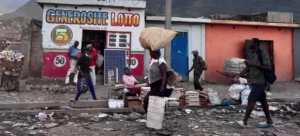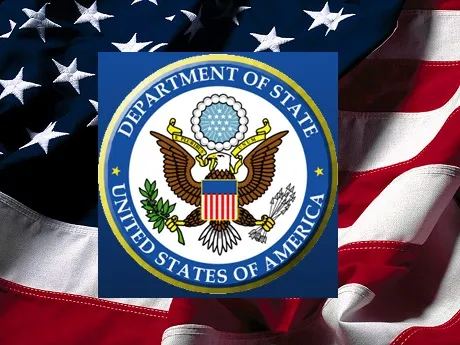The U.S. government appears determined to go beyond the security track in Haiti.
Measures will be taken to address the problem of impunity in Haiti, the State Department stated in a press release issued the day after the United Nations voted on Resolution 2793.
The U.S. Department of State pledges to act on several fronts with other members of the United Nations Security Council.
“The message from the Security Council is clear: the era of impunity for those who seek to destabilize Haiti is over,” the Department of State wrote.
It pledges to work in concert with other partners in the international community to ensure the mission is deployed as quickly as possible.
In a statement published on its website, the Department of State congratulated Kenya and other countries that have agreed to contribute to the Multinational Security Support (MSS) mission, whose mandate is set to expire in less than 24 hours.
In this official text, Washington “welcomes the adoption of the United Nations Security Council resolution” that transitions the MSS to a Gang Suppression Force (GSF) and authorizes the creation of a UN Support Office in Haiti (UNSOH).
“We will work closely with others in the Standing Group of Partners to ensure the swift deployment of the GSF,” the statement says. The immediate goal, it adds, is twofold: “This force will address Haiti’s immediate security challenges and lay the groundwork for long-term stability.”
“We will work closely with others in the Standing Group of Partners to ensure the swift deployment of the GSF,” the statement says. The immediate goal, it adds, is twofold: “This force will address Haiti’s immediate security challenges and lay the groundwork for long-term stability.”
The Department of State underscores the operational urgency. The MSS, originally authorized to stabilize an environment severely degraded by armed groups, is coming to an end; the GSF is designed as its successor. In that spirit, Washington highlights the role of the new logistics architecture mandated by the Council: “The GSF, with support from the UNSOH, will transition to an international burden-sharing model with the sufficient resources needed to fight the gangs.”
The U.S. administration states that it is relying on all key partners in the international community for this latest mission, which should not rest on a handful of contributors but on a broader, better-resourced, and more coordinated coalition.
The Department of State also thanked Kenya, as well as all countries deployed under the MSS, for their efforts in confronting the rampant insecurity in Haiti.
Political message and firm mandate
Politically, Washington aimed to convey a clear message to the actors involved in the crisis. “The message from the Security Council is clear: the era of impunity for those who seek to destabilize Haiti is over,” the Department of State wrote in its brief statement, which appears to send a barely veiled signal to Haitian leaders.
Adopted after intensive consultations, Resolution 2793 confirms a long-anticipated reorganization: the MSS, a non-UN mission funded by voluntary contributions and led by Kenya, gives way to a force dedicated to gang suppression and to a UN support office tasked with providing rations, fuel, accommodation, medical capabilities, and technical support (communications, IT, geographic information systems).
The wager is as much logistical as it is operational: to guarantee bases, enablers, and rotations commensurate with the mandate, while coordinating more closely with the UN apparatus already present in Haiti.
The U.S. communiqué states it plainly: the GSF must address the security emergency while also “laying the groundwork” for an environment conducive to institutional recovery. This presupposes that the fight against gangs fits within a broader strategy, which includes supporting legitimate authorities, securing public spaces, protecting vulnerable people, and the gradual restoration of essential services. It is also the thrust of the burden-sharing model being advanced, meant to create incentives for other states to join the effort.
As was the case when the MSS was established, significant changes could be made within the transitional government.
Discussions are reportedly underway in Washington to that effect, according to sources close to U.S. diplomacy.
Moreover, the U.S. chargé d’affaires in Haiti, Henry Wooster, has not concealed his frustration with Haitian transitional leaders’ tendency to stay in power without delivering results.
Discussions are reportedly underway in Washington to that effect, according to sources close to U.S. diplomacy.
Moreover, the U.S. chargé d’affaires in Haiti, Henry Wooster, has not concealed his frustration with Haitian transitional leaders’ tendency to stay in power without delivering results.








